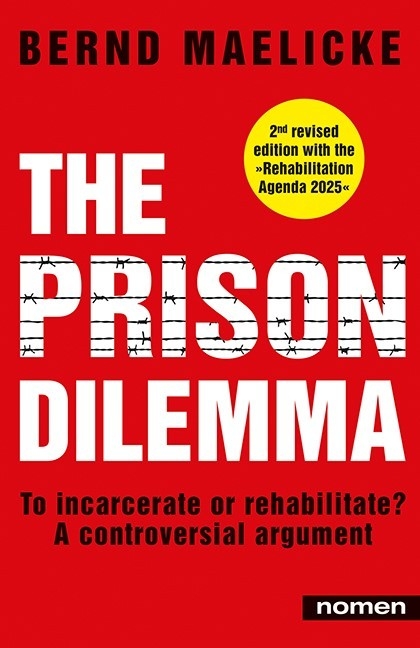
The Prison Dilemma
NOMEN Verlag
978-3-939816-64-5 (ISBN)
This is the starting point for offender rehabilitation expert Bernd Maelicke. His assumption is that imprisonment is only truly necessary for serious and dangerous offenders. In his view, for most offenders, prisons remain »schools of crime« that do
little to change them for the better. The detrimental effects of prison subculture predominate.
Drawing on case studies, personal and professional experiences, and empirical data, Bernd Maelicke demonstrates where
the shoe still pinches. He outlines innovative strategies and projects that are slowly emerging in Germany, that focus on
supporting offenders with their social reintegration more effectively, and that policymakers and practitioners around the
world can draw on to better prevent re-offending and protect potential victims.
PROF. DR. BERND MAELICKE, born in 1941, is one of Germany’s bestknown crime and social policy experts.From 1978 to 1990, he was director of the renowned Institute for Social Work and Social Education (ISS) in Frankfurt am Main. As undersecretary in the Ministry of Justice of Schleswig-Holstein from 1990 to 2005, he steered reform and development in the state system of custodial and non-custodial services. Since 2005, he has been founding director of the German Institute for Social Economy (DISW) in Lüneburg. He has published innovative concepts for the rehabilitation of offenders and the protection of victims in numerous articles and books.
Preface to the international edition 11
Preface to the 2nd German edition 13
Prologue 17
I. Of pathways, both straight and winding 23
Turning Points (1) 23
Becoming a criminal 30
A perfectly normal procedure 37
Old walls, new ideas 54
From freedom to captivity 66
The objective of imprisonment: offender rehabilitation 71
Serving sentence in the regular enforcement regime 81
Release and rehabilitation 116
II. In search of something better than imprisonment 137
Turning points (2) 138
III. Schleswig-Holstein, the model experiment 161
IV. To incarcerate or rehabilitate? 189
V. Perspectives 227
VI. Offender Rehabilitation Agenda 2025: towards evidencebased and outcome-oriented criminal justice and social
policy 259
Action Plan 263
Literature 265
»A motivating book for a rational criminal policy, and a fascinating reading not only for professionals.« (Süddeutsche Zeitung)
»A fascinating report on the daily routine in German prisons.« (Stern Crime)
»Maelicke’s book offers an impressive insight into the daily routine in German prisons and initiates an overdue discussion.« (Sächsische Zeitung)
»The author knows what he is writing about.« (Neues Deutschland)
»A highly readable book: A must not only for persons involved in internal and justice policy.« (NDR Info: Das politische Buch)
| Erscheinungsdatum | 30.10.2019 |
|---|---|
| Verlagsort | Frankfurt am Main |
| Sprache | englisch |
| Original-Titel | Das Knast-Dilemma |
| Maße | 135 x 210 mm |
| Gewicht | 390 g |
| Themenwelt | Sachbuch/Ratgeber ► Geschichte / Politik ► Politik / Gesellschaft |
| Sozialwissenschaften ► Pädagogik ► Sozialpädagogik | |
| Schlagworte | Bewährungshilfe • Drehtürvollzug • Penal system • Prävention • prevention • Probation work • Rehabilitation • »Rehabilitation Agenda 2025« • Reso-Agenda 2025 • Resozialisierung • Revolving door prison system • Schools of crime • Schulen des Verbrechens • social reintegration • Strafvollzug |
| ISBN-10 | 3-939816-64-7 / 3939816647 |
| ISBN-13 | 978-3-939816-64-5 / 9783939816645 |
| Zustand | Neuware |
| Haben Sie eine Frage zum Produkt? |
aus dem Bereich


